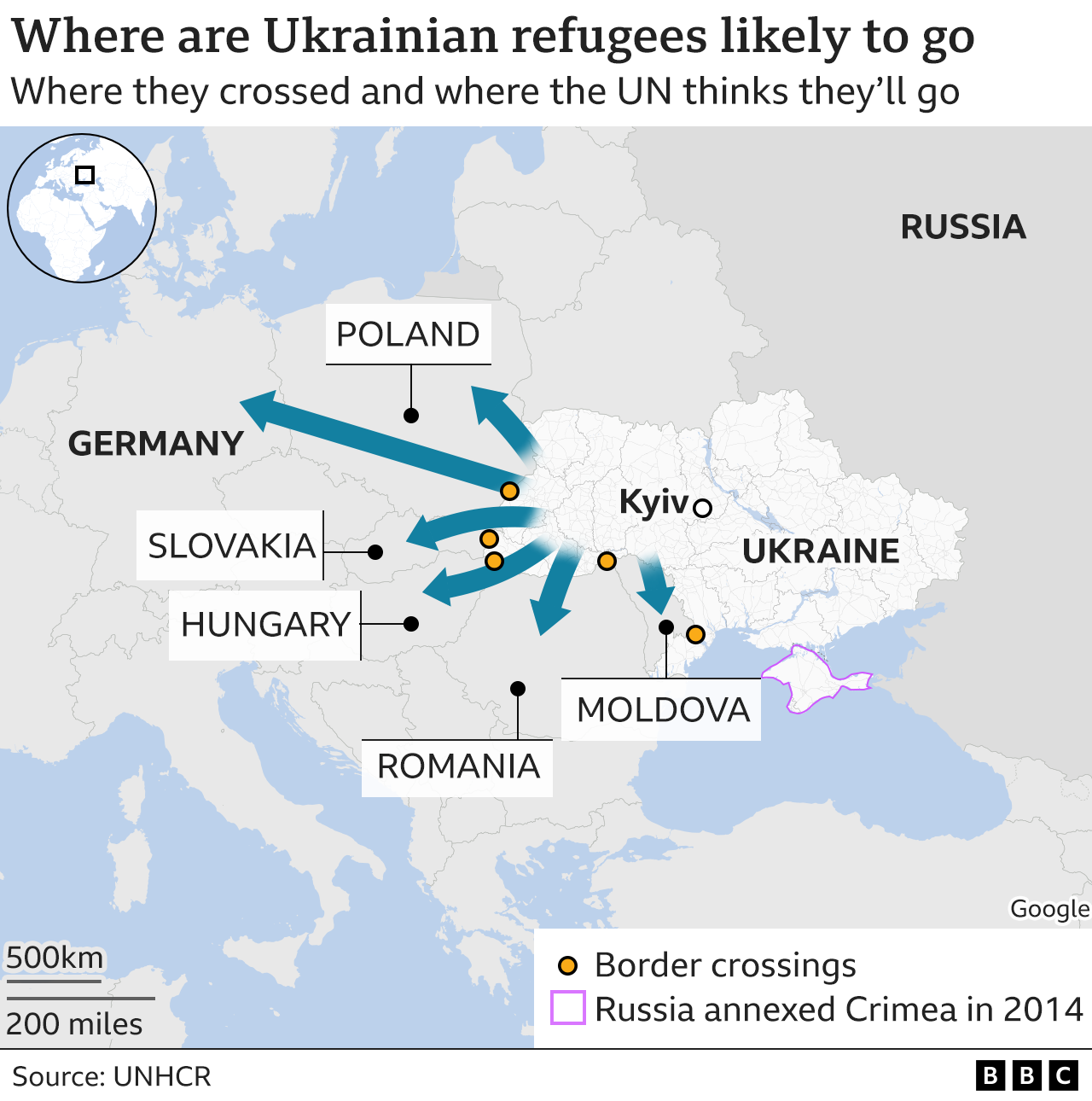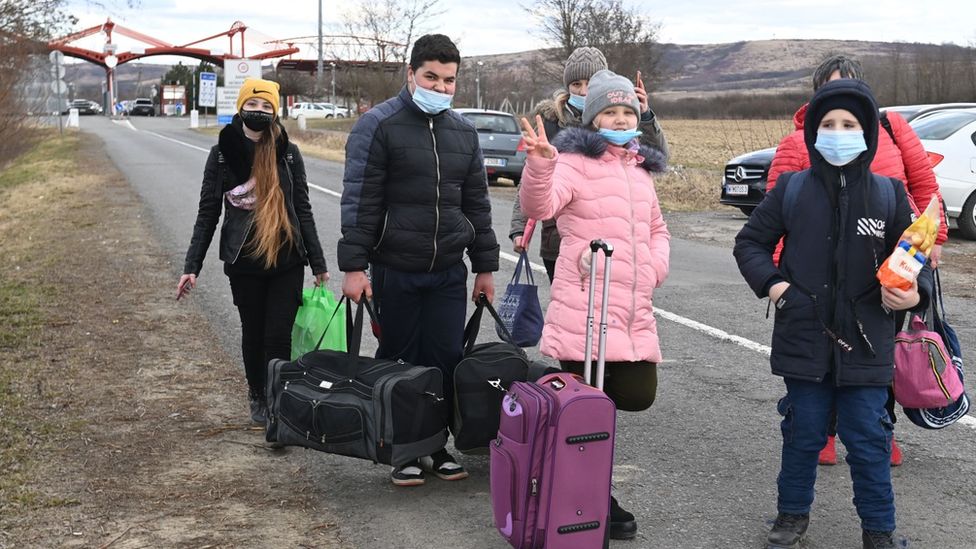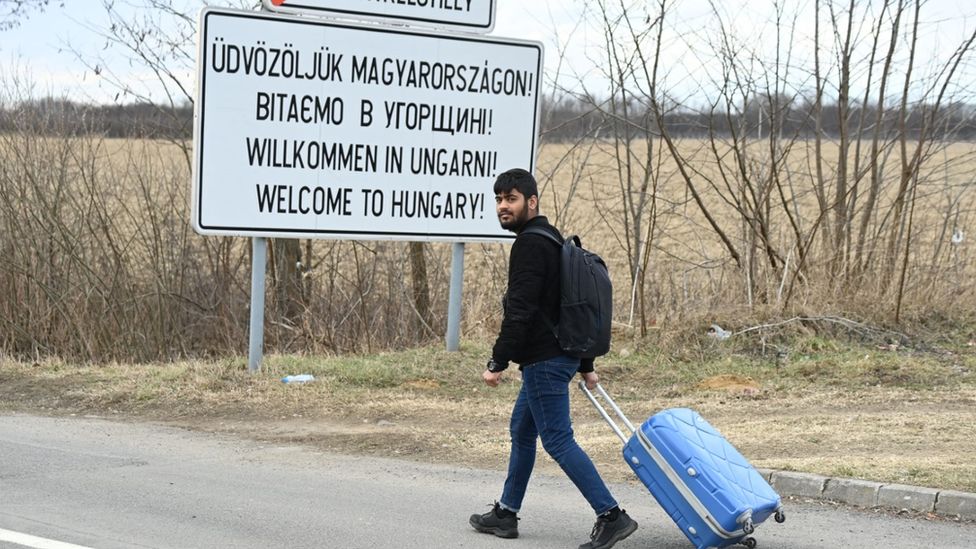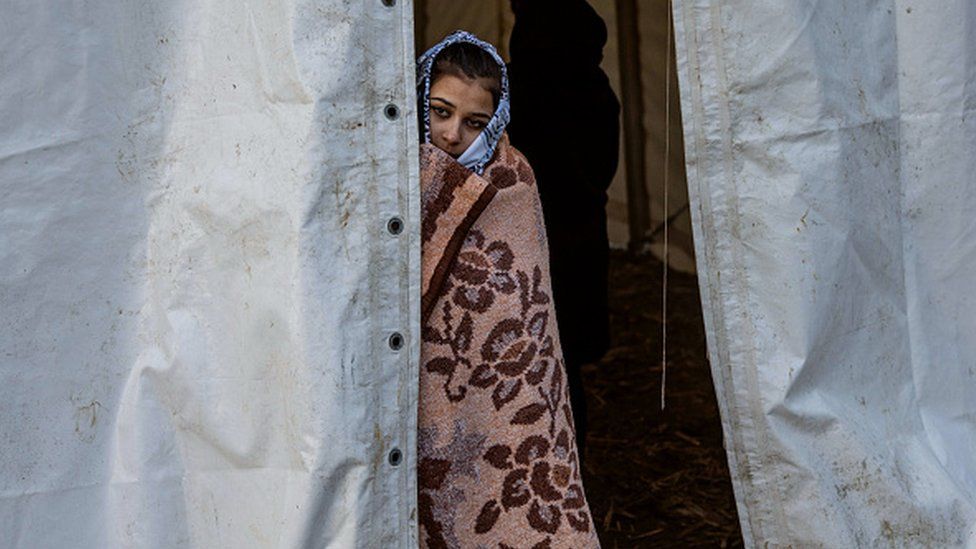BBC News 28 February 2022
Over half a million civilians have fled Ukraine, according to the UN.
The European Union (EU) estimates that up to 4m people may try to leave the country because of the Russian invasion.
Which countries are Ukraine's refugees fleeing to?
Refugees are crossing the borders to neighbouring countries to the west, such as Poland, Romania, Slovakia, Hungary and Moldova.
On Monday, the UN said that over 500,000 Ukrainians had entered these countries.
Poland has so far taken in over 280,000 refugees, according to the UN. The Polish government says a further 50,000 are arriving every day.
Poland is also preparing a medical train to transport wounded Ukrainians and has drawn up a list of 1,230 hospitals to send them to.
Over one million Ukrainians have settled in Poland in recent years, especially since 2014, when Russia annexed Crimea
In terms of other countries, the UN says as of Sunday evening:
- Hungary had taken 71,158
- Romania 43,184
- Moldova 41,525
- Slovakia 17,648
Slovakia says it is now accepting over 10,000 refugees a day.
Refugees are being told they do not need documents to get into neighbouring countries, but should preferably have their internal or foreign travel passports, birth certificates of children travelling with them and medical documentation.
To get refugee status, they need to be Ukrainian citizens or people legally living in Ukraine, such as foreign students.
However, many people have been waiting for days to cross at some border points in queues up to 15km (10 miles) long, and many have not been able to board trains taking them out of Ukrainian cities.
What help are countries providing?
In Poland and the other countries bordering Ukraine, refugees can stay in reception centres if they do not have friends or relatives to stay with. They are given food and medical care there.
In Hungary and Romania, refugees are being given cash allowances for food and clothing. Children are being given places in local schools.
Countries used to have time limits on how long refugees could spend in reception centres, but most are saying they are likely to waive them and that Ukrainians can stay in them for as long as they need to.
The Czech Republic has activated its Migration Wave Preparedness Plan. The plan will help refugees apply for a special type of visa through a simplified procedure in order to remain if needed.
What is the UK doing for the refugees?
The UK says Ukrainians can come to the UK if they have relatives who are British nationals. The processing centre in Kyiv is closed, but the office in the western city of Lviv is open, and people can apply from nearby countries.
Family members who can get British visas are:
- a spouse or civil partner
- an unmarried partner of at least two years,
- children under the age of 18
- a parent if their grandchild is under the age of 18
- adult relatives who are carers
How many Ukrainians are internally displaced?
The UN estimates that there are now at least 160,000 people in Ukraine who are have fled the war and are displaced within their own country.
The EU believes that figure could climb to 7m, and that 18m Ukrainians will be affected by the war.
"Even though these are very rough estimates," said European Commissioner for Humanitarian Aid and Crisis Management, Janez Lenarcic, "the figures are huge, and we have to prepare for this kind of emergency, which is of historical proportions."
What rights do the refugees have?
The EU is preparing to grant Ukrainians who flee the war a blanket right to stay and work throughout the 27 nations of the bloc for up to three years, according to EU and French officials. They would also receive social welfare and access to housing, medical treatment and schooling for children.
This is in line with the EU's temporary protection directive for refugees, drawn up after the 1990s war in the Balkans but never used until now.
The normal rules for refugees have been lifted to let Ukrainians settle where they like in the EU.




